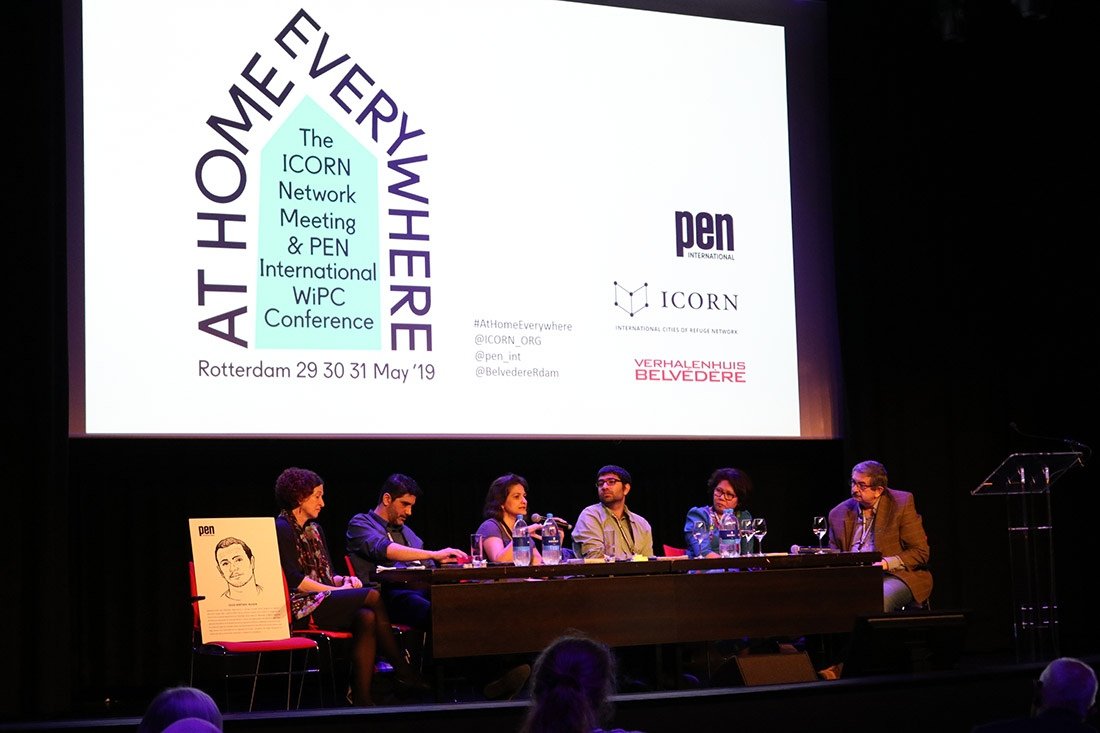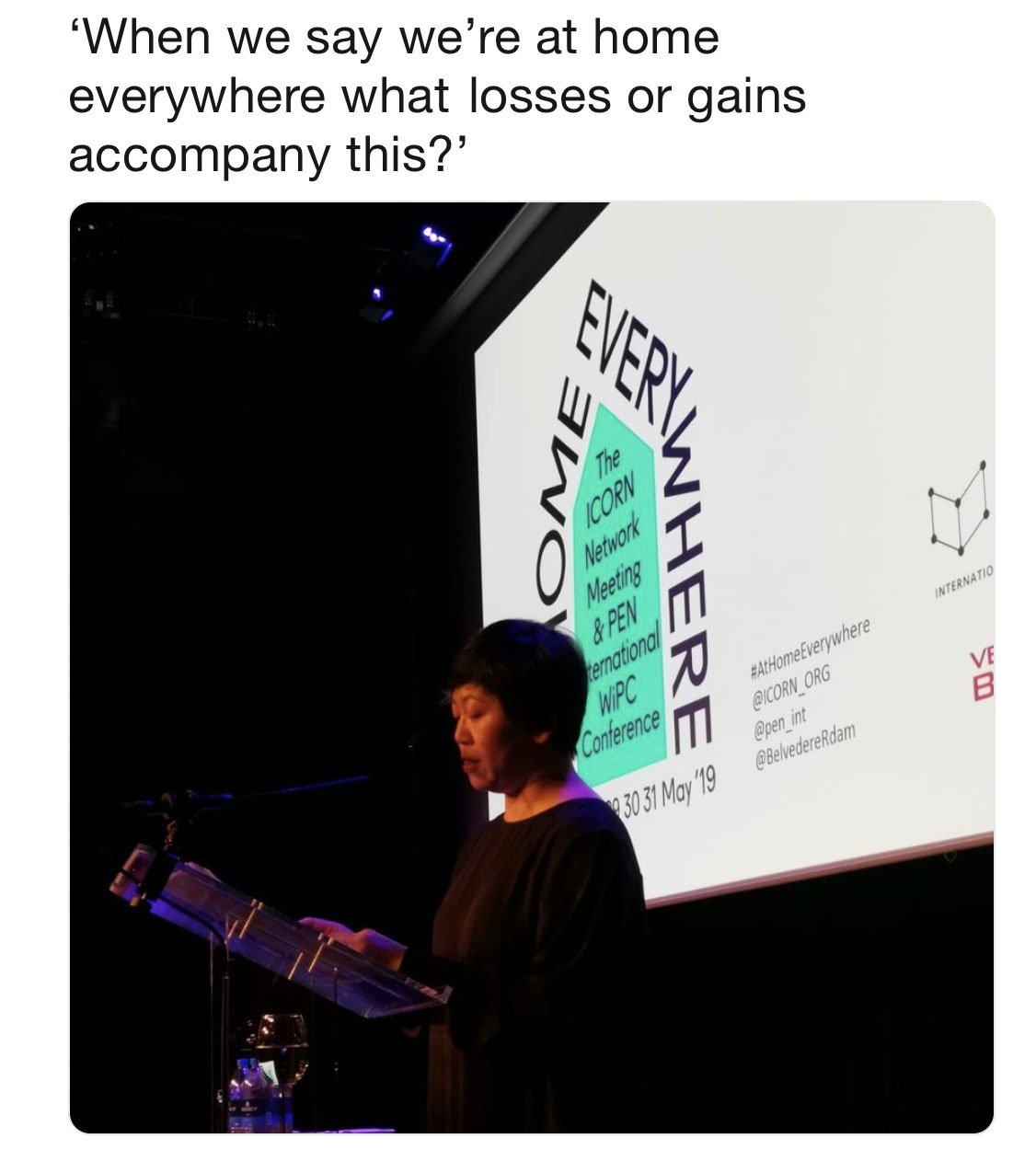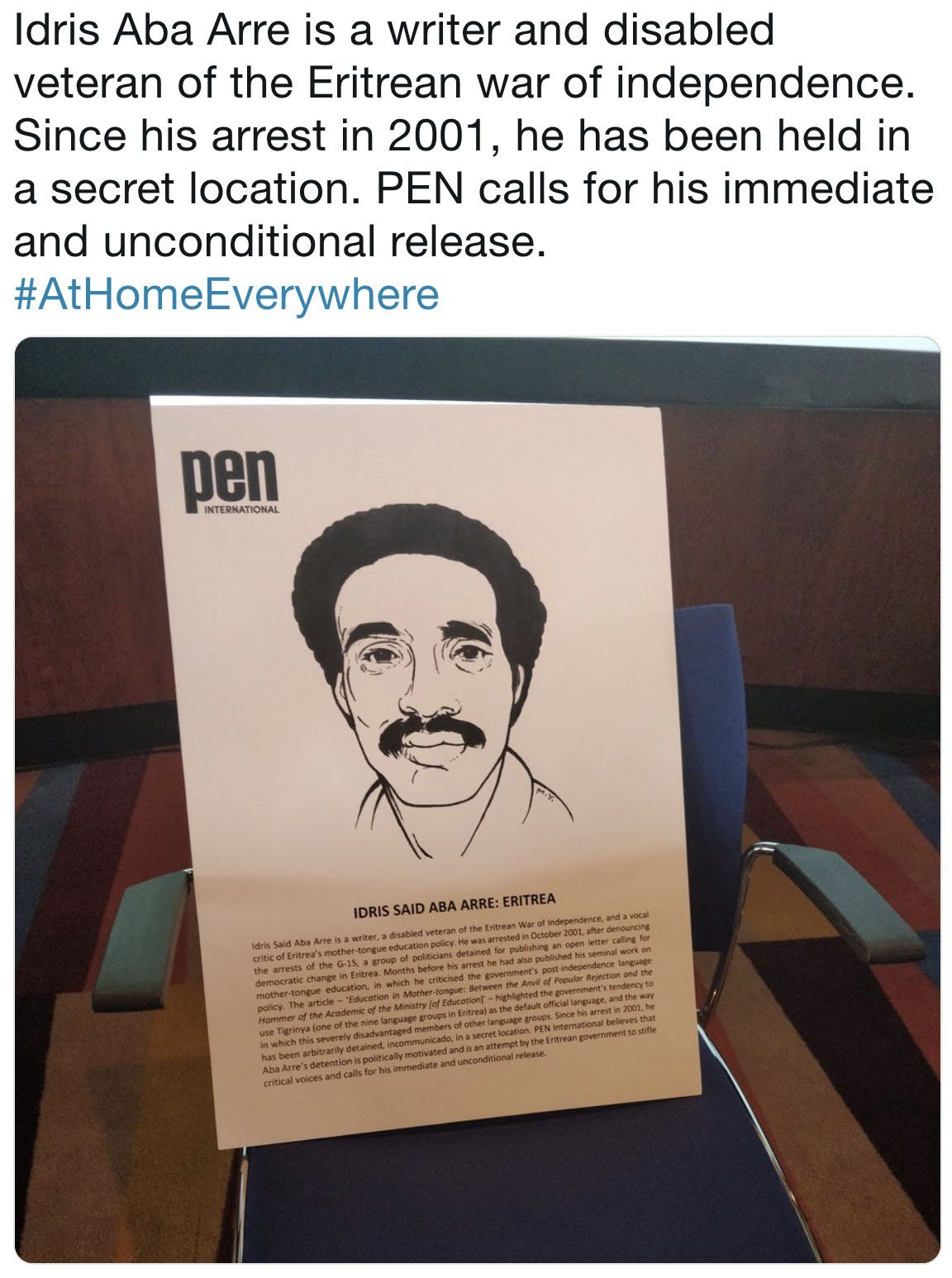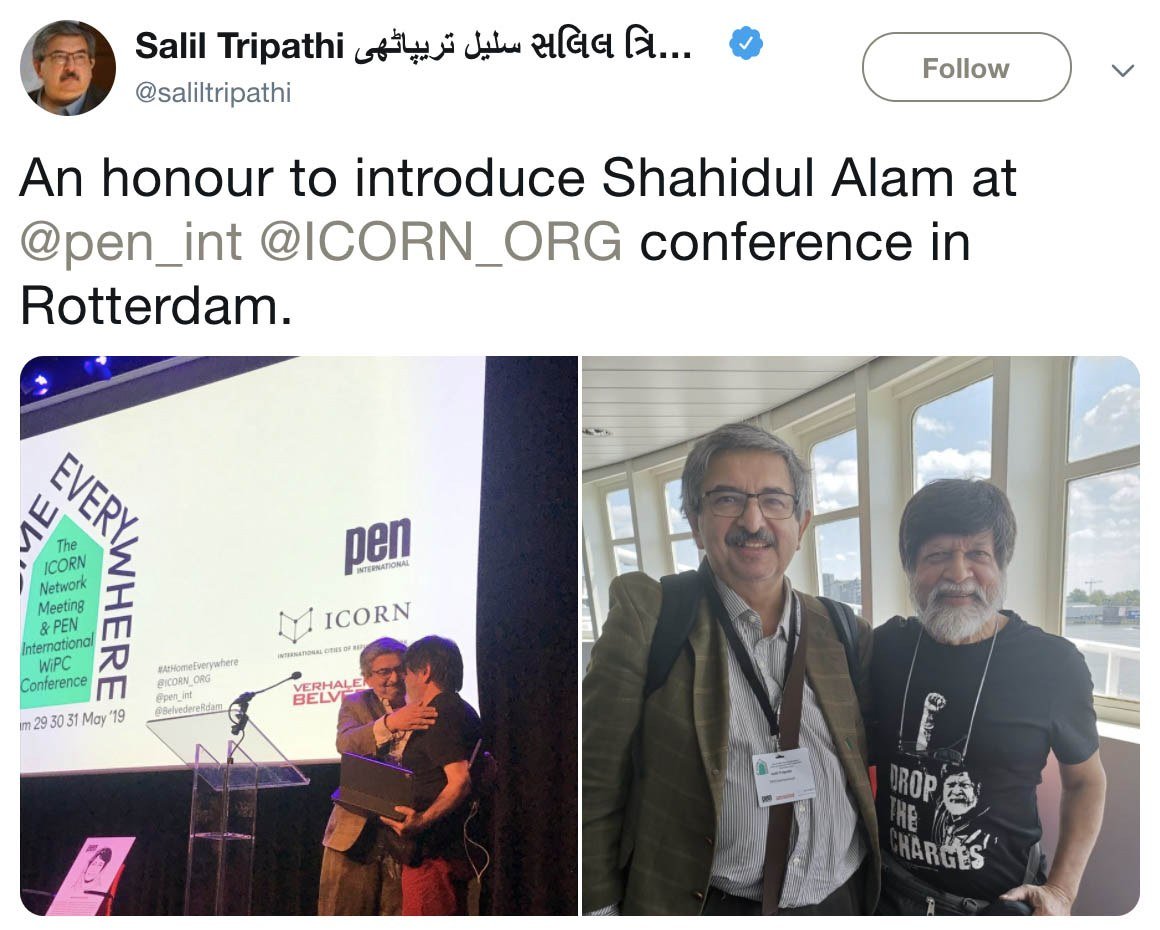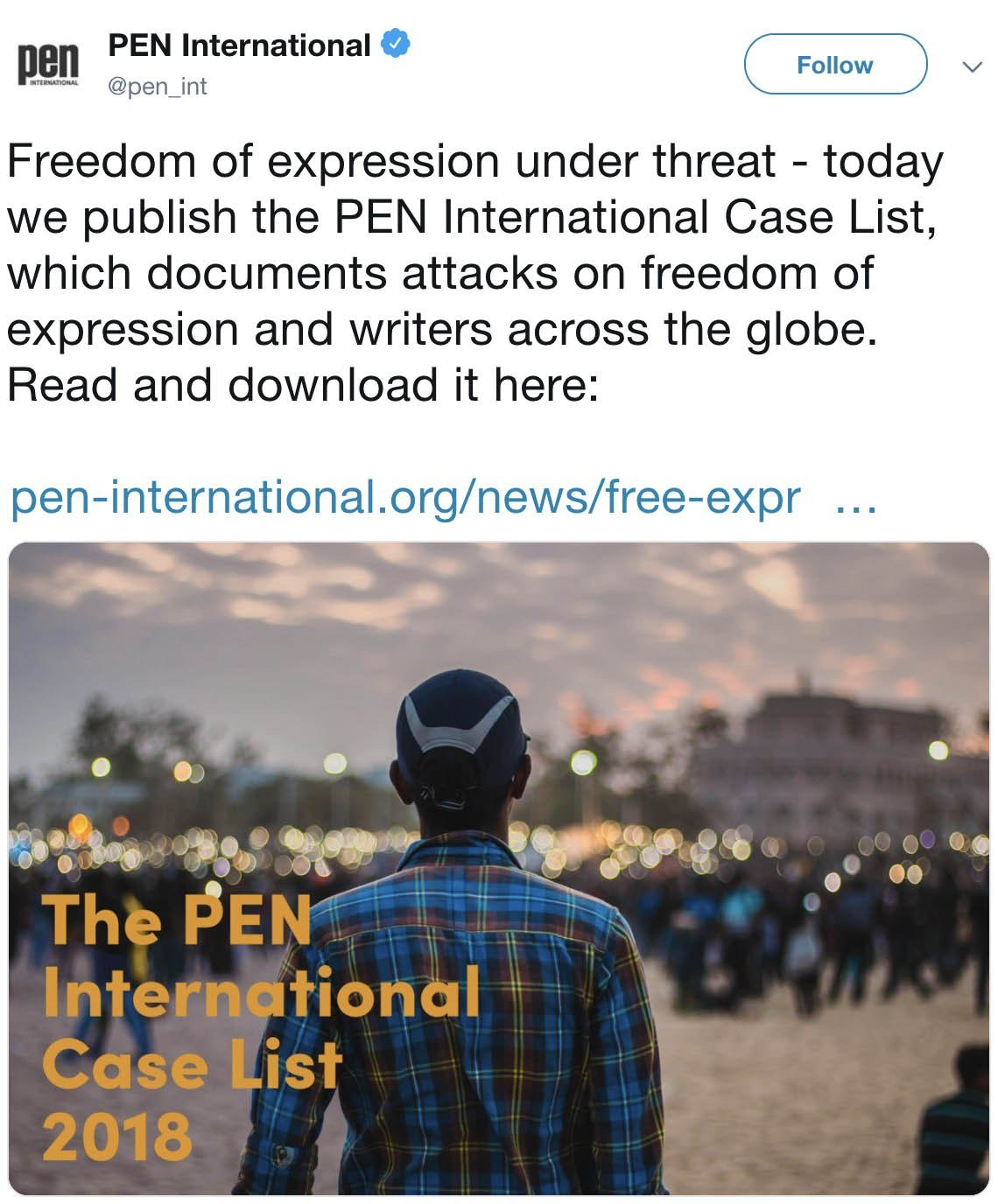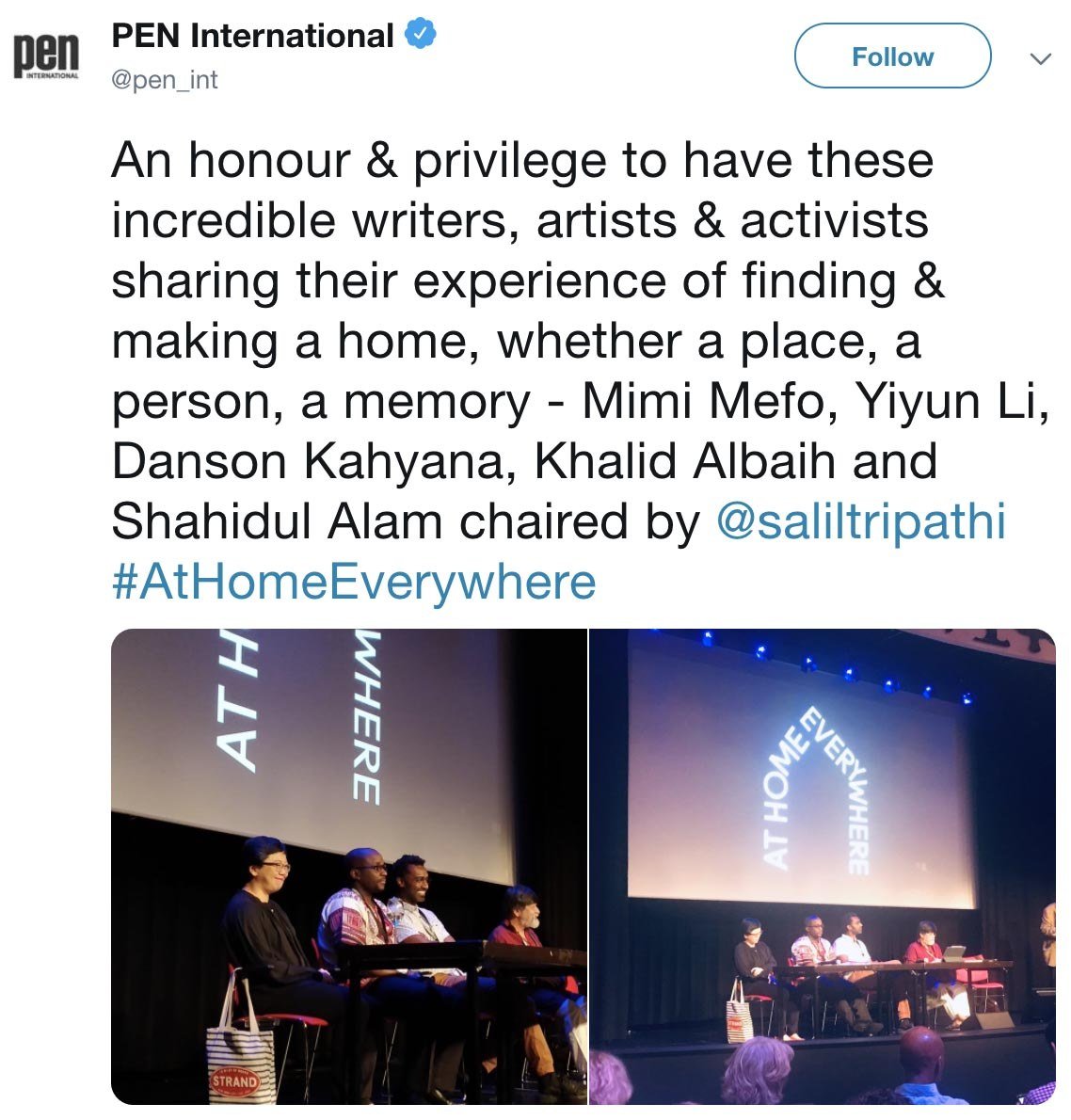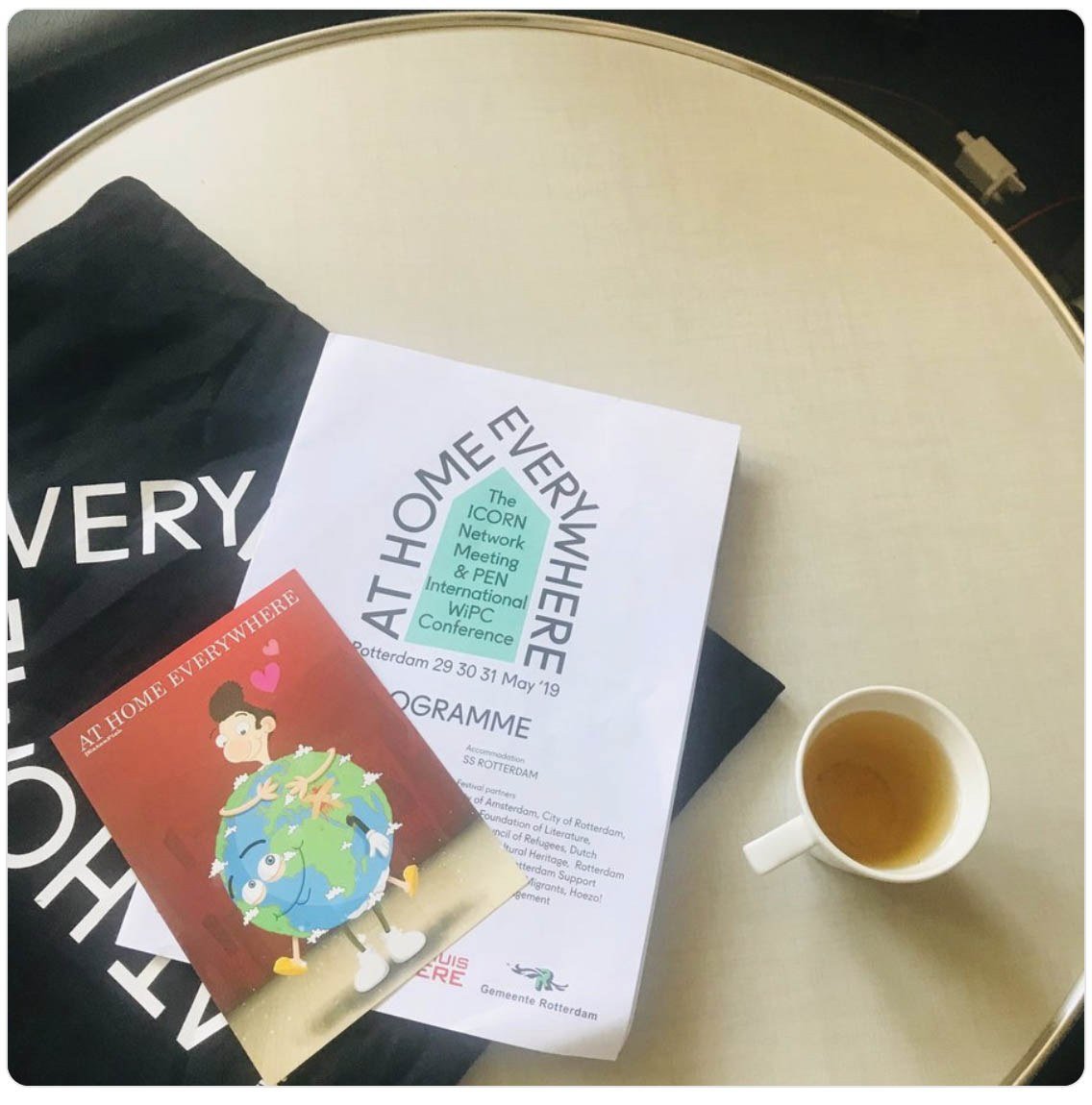PEN/ICORN 2019: Writers and artists from around the world find themselves at home everywhere
The Role of the Writer in Countering Xenophobia: Karin Karlekar, Basim Mardan, Naeimeh Doostdar, Gautam Bathia, Ma Thida, Salil Tripathi
Over 300 writers, artists, activists, city representatives, sister networks and experts from around the globe met in Rotterdam 29-31 May 2019 to explore what it means to be at home in today’s world, and what it means when 'home' becomes increasingly hard to identify.
The International Cities of Refuge Network (ICORN) and PEN International meeting is held every two years, and mixes debate with discussion, music with poetry readings, and more. The conference opened with a screening of the Olivier award-winning actor Noma Dumezweni reading the PEN International Women’s Manifesto. The Women's Manifesto is a set of principles which aim to protect free expression for women by combating and eliminating the silencing of women worldwide, whether through censorship, harassment, or violence.
Novelist and short story writer Yiyun Li delivered the keynote ‘The Art of Losing a Home, The Art of Finding a Home’, via a mix of lecture and video from her film A Thousand Years of Good Prayers in which she explored what we lose and gain in the process of leaving one home behind and making another.
PEN has a long-standing tradition of presenting an Empty Chair to symbolise and honour a writer who cannot be present because they have been imprisoned, detained, disappeared, threatened or killed. The Empty Chair often represents a specific case, and regularly takes centre stage at PEN meetings. Throughout the meetings we used the Empty Chair to remember Oleg Sentsov, Idris Abe Arre, Nasrin Sotoudeh and Ilham Tohti.
"I am on the side of the oppressed. When I took pictures of the student protests in Bangladesh, the crosshairs landed on me. I was documenting history."
In his keynote speech, notable photographer, writer and activist, Shahidul Alam described the conditions of his arrest and paid tribute to the prisoners he met and worked alongside while detained. He was arrested at his home by men in plainclothes shortly after speaking about road safety protests in Dhaka. He was held for over a hundred days. He is currently out on bail but the case against him is ongoing.
PEN International also published its Case List, documenting the increasing number of threats to writers and journalists around the world in the course of their work. 2018 saw a doubling of journalists murdered in retaliation for their reporting. From the brutal murders of Saudi journalist Jamal Khashoggi at the Istanbul's Saudi Consulate to murders of the Slovak reporter Ján Kuciak and his fiancée at their home, journalists around the world remain at great risk when carrying out their work. At least eight journalists were killed in Mexico and nine broadcast journalists were killed in bomb attacks in Afghanistan.
The meeting closed with a celebration of freedom of expression with an incredible panel of writers, artists and activists sharing their experience of finding and making homes which included Mimi Mefo, Yiyun Li, Danson Kahyana, Khalid Albaih and Shahidul Alam.
We would like to thank all of the writers and artists who participated in this event, including Fatemeh Ekhtesari, Asieh Amini, Supriti Dhar and Nazeeha Saaed. Our special thanks to Ali Dorani aka Eaten Fish who designed this postcard for the meeting:

